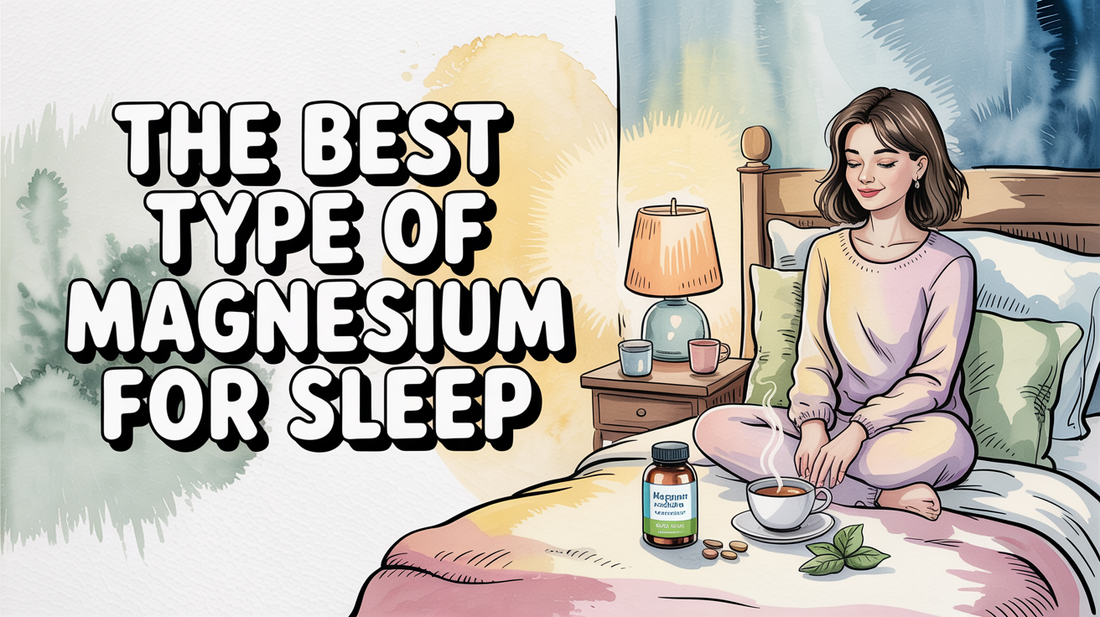What is the best form of magnesium for sleep?
Finding the right form of magnesium can be essential for enhancing relaxation and sleep quality. Among the various magnesium types, magnesium glycinate sleep is often highlighted as a top choice. This post will delve into the best magnesium for sleep, breaking down the unique benefits of different types to guide you toward a restful night.
Magnesium glycinate is often considered best for relaxation and sleep support
Magnesium glycinate stands out as a preferred choice for promoting relaxation and supporting quality sleep. This form of magnesium is combined with glycine, an amino acid, making it both gentle on the stomach and highly effective. With a bioavailability of 80-90%, magnesium glycinate is absorbed efficiently by the body, helping to promote a sense of calm.
The glycine in this compound also plays a soothing role, acting as a neurotransmitter that may help reduce anxiety and promote relaxation. Unlike some other forms of magnesium, glycinate is less likely to cause digestive discomfort, which can be a significant concern for those looking to improve their sleep.
- Superior absorption rates (80-90%) make it effective.
- Gentle on the digestive system, reducing the risk of upset.
- May help decrease the time it takes to fall asleep.
- Can improve overall sleep duration.
- Protected from interference by other compounds in the gut.
Try It Tonight: Quick Start ✅
- Screen-free + dim lights for 10–15 minutes.
- Gentle stretch or slow breathing (4–7–8).
- Apply Magnesium Spray as directed (e.g., 4–8 sprays on legs/arms/shoulders 10–20 minutes before bed). Patch-test if new to topicals.
Magnesium citrate supports digestion, while magnesium oxide has poor absorption for sleep benefits
While magnesium glycinate is excellent for sleep, other forms like magnesium citrate and magnesium oxide serve different purposes. Magnesium citrate is often used to assist with digestion, functioning as an osmotic laxative, whereas magnesium oxide has limited absorption and is typically utilized as an antacid.
Due to its moderate bioavailability of 30-40%, magnesium citrate can be effective for digestive relief but may lead to discomfort or interruptions in sleep quality. On the other hand, magnesium oxide's absorption rate is quite low at 4-15%, making it less suitable for those seeking sleep benefits without gastrointestinal side effects.
- Citrate works as a laxative and may cause digestive discomfort.
- Oxide needs larger doses for any noticeable effects.
- Both forms can potentially lead to gastrointestinal side effects.
Why We Recommend a Gentle Helper 🌿
Magnesium Spray is formulated for quick absorption and a soothing experience, making it an ideal addition to your bedtime ritual.
- Quick-absorbing comfort—no heavy residue.
- Gentle feel designed to minimize tingling/itch.
- Clean-leaning and bedtime-friendly scent.
Match the form of magnesium to your needs—glycinate for calm, citrate for digestion 🔍
Choosing the right form of magnesium can significantly depend on your personal health goals and tolerance levels. Magnesium glycinate is particularly beneficial for those looking to reduce stress and improve sleep, while magnesium citrate is better suited for digestive concerns.
Be mindful of when you take these supplements; glycinate is recommended in the evening to aid sleep, while citrate may be utilized during the day for digestive support. Starting with lower doses and gradually increasing can help you find the right balance without unintended side effects.
- Glycinate is ideal for stress and sleep improvement.
- Citrate supports digestion and is best during the day.
- Consult a healthcare provider before changing forms.

